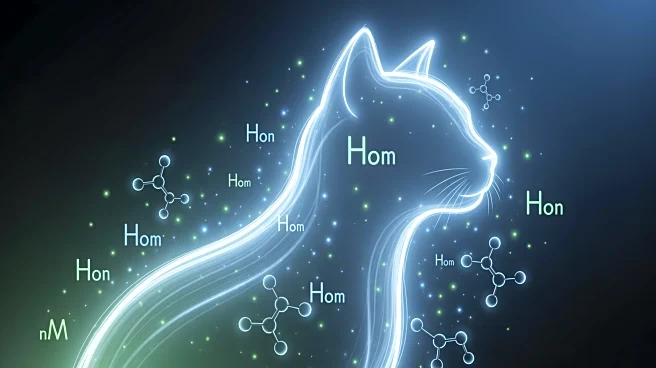What's Happening?
Recent research suggests that regular consumption of tea and coffee may lower the risk of developing head and neck cancers. The study, led by Dr. Yuan-Chin Amy Lee from the Huntsman Cancer Institute and the University of Utah School of Medicine, analyzed data from 14 studies across Europe, North America, and Latin America. It involved 9,548 individuals diagnosed with head and neck cancers and 15,783 people without the disease. Participants provided detailed information about their coffee and tea drinking habits, including whether they drank caffeinated or decaffeinated coffee. The findings indicate that individuals who drank more than four cups of caffeinated coffee daily had a 17% lower chance of developing head and neck cancers compared to non-drinkers. The protective effect was strongest for cancers in the oral cavity and oropharynx. Decaffeinated coffee also showed benefits, particularly in reducing oral cavity cancer risk. Tea consumption showed a 9% lower chance of head and neck cancers overall when limited to one cup or less per day, but higher consumption was linked to increased risk of laryngeal cancer.
Why It's Important?
The study highlights the potential public health benefits of moderate tea and coffee consumption in reducing cancer risk. Head and neck cancers are among the more common forms of cancer worldwide, making any factor that could help reduce this risk of considerable interest. The research suggests that compounds in coffee and tea, such as antioxidants and polyphenols, may play a role in reducing cancer risk. However, the study also emphasizes the complexity of the relationship between beverage consumption and cancer risk, influenced by factors like consumption patterns, genetic predispositions, and lifestyle choices. While the findings offer reassurance to those who enjoy these beverages, they also underscore the importance of moderation and the need for further targeted studies.
What's Next?
Further research is needed to explore the varying effects of tea and coffee on different parts of the throat and oral cavity. The study's limitations, such as self-reported consumption data and lack of differentiation between types of tea, suggest areas for improvement in future studies. Experts caution that while the findings are promising, they do not prove direct cause and effect. Lifestyle factors such as avoiding smoking and limiting alcohol intake may also contribute to reduced cancer risk. As scientists continue to investigate the relationship between hot beverages and cancer risk, consumers are advised to maintain a balanced approach to consumption.
Beyond the Headlines
The study raises questions about the broader implications of dietary choices on cancer prevention. It suggests that bioactive compounds in tea and coffee could have protective effects beyond their known antioxidant and anti-inflammatory properties. However, the research also highlights the need for comprehensive cancer prevention strategies that include lifestyle modifications. The findings contribute to a growing body of evidence that supports the health benefits of tea and coffee, but they also call for caution in interpreting the results and applying them to individual health decisions.










